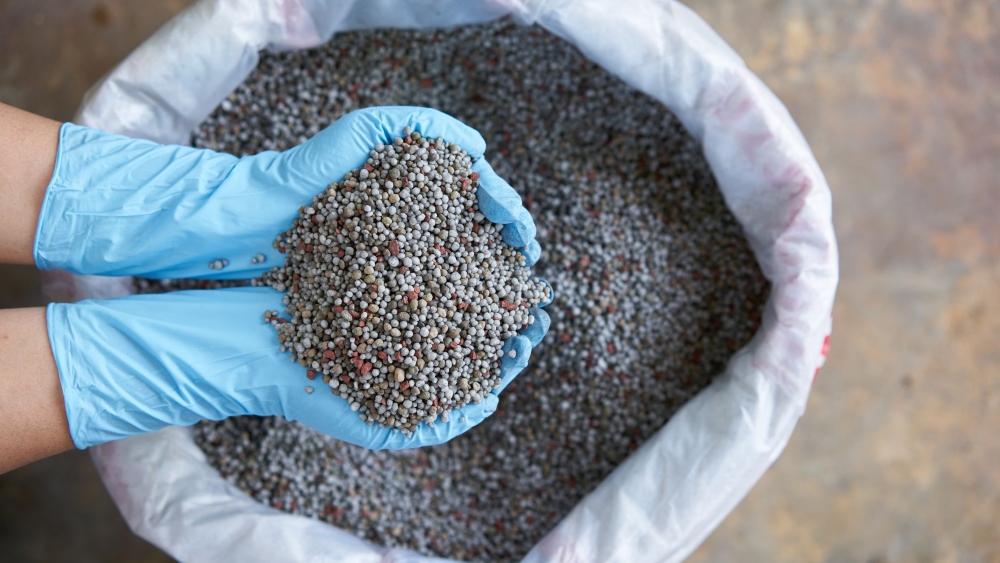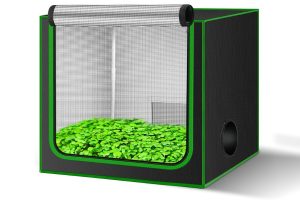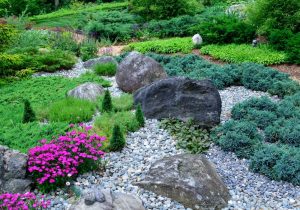
The correct fertilizer will influence your plants’ production and general condition. When shopping, you have synthetic and natural fertilizers to pick from. Every fertilizer presents different advantages and disadvantages.
This article explores the distinctions between synthetic and natural fertilizers. We will talk about how how these fertilizers would affect your garden.
Understanding Fertilizers: Natural vs. Synthetic
Contents
Deciding between natural and synthetic fertilizers is more than just a choice about what to feed your plants—it’s about what’s best for your garden’s long-term health and your environmental footprint. Here, we’ll look at what sets these two types of fertilizers apart, from what they’re made of to how they help your plants grow.
What’s in Your Fertilizer?
Natural Fertilizer: Natura fertilizers come from sources like compost, manure, or bone meal. These materials break down over time, feeding your soil and improving its structure. This improves your garden’s ability to hold water and nutrients, fostering a nurturing environment for your plants.
Synthetic Fertilizer: On the flip side, synthetic fertilizers are crafted in labs and focus on delivering quick, targeted nutrients to plants. Common ingredients include ammonium nitrate and potassium sulfate. They’re great for giving your plants a fast boost, but because they’re so concentrated, they can also lead to nutrient runoff which might harm the environment.

How They Work
Natural Fertilizer: Using natural fertilizer is like slow-cooking your soil’s nutrient supply. It releases its benefits gradually, ensuring that your plants get a balanced diet without the risk of overfeeding. This slow pace helps maintain soil health, making nutrients available to plants as they need them.
Synthetic Fertilizer: Synthetic fertilizers are the fast food of plant nutrients. They’re quick and convenient. Plants get an immediate helping of nutrients, which can be perfect if they’re showing signs of deficiencies. However, this fast release can sometimes be too much too soon, risking nutrient leaching into nearby waterways.
Choosing the right fertilizer involves more than just considering plant growth. It’s about weighing these differences and thinking about what’s best not only for your plants but also for the environment. Whether you go natural or synthetic, understanding these basics will help you tailor your gardening practices to be as effective and sustainable as possible.

Nutritional Benefits of Natural Fertilizers
Providing the nutrients needed for plants to flourish, fertilizers are quite important. Whether you go natural or synthetic, knowing the nutritional value of each will significantly affect the state and output of your garden. We show here how environmentally friendly and efficient natural fertilizers are for feeding plants.
Rich, Balanced Nutrient Supply
Natural fertilizers shine in offering a good balance of nutrients. Natural fertilizers frequently provide a wide spectrum of nutrients that plants need, unlike synthetic alternatives which could focus on just a few fundamental ingredients.
This covers not only the main minerals like nitrogen, phosphorous, and potassium, but also vital micronutrients needed for plant development. Natural fertilizer’s organic components serve to gradually raise soil fertility, therefore guaranteeing a consistent and balanced diet for plants.

Slow and Steady Nutrient Release
Natural fertilizer provides nutrients in a mild and steady manner. Organic materials gradually release nutrients into the soil as they break down, therefore providing plants with a constant supply over a longer length of time.
This slow-release technique helps avoid the possibility of nutrient overload, which may be detrimental to plant health and cause problems with growth including weak root systems and lowered resistance to pests and diseases.
Enhancing Soil Health
Beyond only nourishing plants, natural fertilizers improve the general condition of the ground. They enhance water retention, change soil structure, and stimulate helpful microbial activity. These elements are essential for a healthy surroundings where plants may grow freely. By organically cycling nutrients and guarding against diseases and pests, healthy soil functions as a biological system supporting plants.
Knowing these nutritional advantages becomes absolutely vital when choosing the ideal fertilizer for your plants. Natural fertilizers not only meet plants’ immediate demands but also improve the long-term health and output of the garden ecosystem.

Using Synthetic Fertilizer
Synthetic fertilizers are a go-to for quick plant boosts and specific nutrient fixes, but it’s important to consider both their upsides and the reasons they might not be the best fit for every garden.
Why Synthetic Fertilizers Can Be Good for Plants
- Quick Nutrient Boost: Synthetic fertilizers are handy if your plants need nutrients quickly. They’re especially handy during high growth periods when plants are developing flowers or fruits and need a lot of support.
- Specific Solutions: Synthetic fertilizers are great because they are customizable. You can pick a formula that targets exactly what your soil lacks, ensuring your plants get the right nutrients at the right time.
- Efficient Results: These fertilizers are all about efficiency. Plants can absorb the nutrients quickly, so you often see rapid improvements in growth and yield.
Why You Might Think Twice About Synthetic Fertilizers
- Environmental Concerns: The downside starts with their impact on the environment. Producing synthetic fertilizers is energy-intensive and polluting. Once in your garden, they can wash away easily, ending up in rivers or lakes and causing algae blooms and other ecological issues.
- Soil Health: Synthetic fertilizers don’t do anything to improve soil structure. Over time, using them can actually degrade soil health, making it hard and compact. This makes it tough for plants to thrive without constant fertilizer input.
- Residue and Health: Regular use can build up harmful residues in the soil. These chemicals might end up in your vegetables and herbs, affecting their taste and potentially your health.
- Long-Term Costs: They might seem cheaper at first, but synthetic fertilizers could cost you more down the line. Damaged soil requires more care, and cleaning up environmental damage isn’t cheap either.
When deciding on synthetic or natural fertilizers, consider these pros and cons. While synthetic fertilizers offer quick fixes, they have drawbacks that could outweigh the benefits, especially if you’re looking for sustainable gardening practices.

Growing Plants Without Fertilizer
Though fertilizers can greatly increase plant growth and health, it is quite easy to create a vibrant garden without them. This method mostly depends on building a rich, self-sustaining soil ecology capable of supporting plant life. Let’s look at ways you can do this with techniques that enhance the advantages of natural fertilizer.
Enhancing Soil with Organic Matter
Composting: One of the best approaches to improving the soil naturally is adding compost to your garden. Made from broken-down organic materials, including leaves, kitchen waste, and garden clippings, compost offers a slow-release supply of nutrients akin to those found in a premium natural fertilizer. It enhances microbial life, moisture retention, and soil structure—qualities that directly benefit plant health.

Mulching: Mulching protects the soil, helps to retain moisture, and gradually breaks down into nutrients that plants can take, thereby replicating some advantages of natural fertilizer for your garden beds. Along with nourishing the ground as they break down, materials like straw, bark, or leaf mold control weeds and control soil temperature.
Crop Rotation and Cover Crops:
Crop Rotation: The rotation of crops in your garden will automatically replenish nutrients without requiring any fertilizer. Various plants have different nutritional needs and contributions; rotating them will help you to naturally balance and improve soil fertility.
Cover Crops: Another good tactic is growing cover crops, including legumes or clover. Like employing a nitrogen-rich natural fertilizer, these plants add organic matter and nitrogen directly from the atmosphere to the soil. To further enrich the soil, you can till these plants back into it as green manure following the growing season.
Natural Soil Amendments:
Wood Ash and Eggshells: Specific nutrients can be added to the soil using basic home treatments as pulverized eggshells or wood ash. While eggshells offer calcium, enhancing plant development and cell structure without commercial natural fertilizer, wood ash raises potassium and calcium levels.
Comparing Alternatives to Natural Fertilizer
Although employing cover crops, mulch, and compost can be quite helpful for a garden, there are several disadvantages when compared to applying natural fertilizer straight.
The slower rate at which nutrients become available to plants presents one of the primary difficulties with substitutes like mulch or compost. These organic compounds must break down in the soil before their nutrients are accessible, unlike natural fertilizer, which is meant to offer a balanced nutritional profile that plants may easily absorb. This technique may not satisfy the immediate nutrient needs of fast-growing or high-yielding plants and can be slow.

Moreover, using these other approaches usually calls for more time and effort. For example, building and maintaining a compost pile, mulching, or planting and tilling in cover crops each season might be more work-intensive than merely applying natural fertilizer. Gardeners with little time or physical ability may find this to be a major drawback.
Natural fertilizer is made to offer a balanced blend of vital elements in forms plants can readily absorb. This guarantees that plants get all the required elements in the correct ratios, so supporting ideal development and condition.
Moreover, applying natural fertilizer takes less time than getting and using substitutes. Especially for those who oversee bigger gardens or have less time to do gardening tasks, this easy technique can save time and effort.
Gardeners who concentrate on these natural approaches and soil-enhancing strategies might produce a rich growing environment that might cut or eliminate the need for extra fertilizers. This supports a sustainable gardening method in addition to helping the garden to remain in natural equilibrium.

Making the Right Choice for Your Garden
Choosing the correct fertilizer for your garden requires juggling your objectives for gardening with environmental issues and plant requirements. Whether you choose synthetic fertilizers, natural ones, or even none at all, knowing the benefits and drawbacks of each can help you decide which would be ideal for a fruitful and healthy garden.
Assessing Your Garden’s Needs
Check your garden’s particular requirements before deciding on a fertilizer. Consider the kinds of plants you are raising, their nutrient needs, and the state of your soil right now. Soil testing is particularly useful, as it offers comprehensive information on pH and nutrient levels, guiding your choice of fertilizer.
- Vegetables: Many crops, like tomatoes and peppers, are heavy feeders that need high phosphorus to support fruit growth and potassium to improve disease resistance. A balanced natural fertilizer or a focused synthetic mix can satisfy these needs, particularly if nitrogen is added to stimulate rapid development.
- Fruits: Apple trees and blueberries are among fruit-bearing plants that call for a somewhat different strategy. While apple trees need a consistent supply of nitrogen throughout the growing season to ensure strong foliage and abundant fruit, blueberries flourish in acidic soil and benefit from a fertilizer heavy in ammonium, which can lower soil pH.
- Ornamental Plants: Roses and azaleas have different specialized demands. Roses bloom brilliantly and have robust stems when fertilizers high in nitrogen and potassium abound. Conversely, azaleas flourish in acidic soil and call for a fertilizer that not only increases bloom but also preserves a low soil pH.

Conducting soil tests is one of the most effective ways to tailor your fertilizing strategy to the exact needs of your garden. These tests provide vital information about the current nutrient content and pH level of your soil. With this data, you can make informed decisions about which type of fertilizer is necessary to correct deficiencies without over-supplying certain nutrients that could harm plant health.
Environmental Considerations
Consider the effects your choice has on the surroundings. Environmentally minded gardeners choose natural fertilizers mostly because they are more sustainable and have less of an impact on the surroundings. If you decide on synthetic fertilizers, though, search for products designated as ecologically benign or those providing slow-release nutrients to reduce runoff.
Ease of Use and Availability
Think about the pragmatic features of applying the fertilizer, including its simplicity and whether it is easily accessible in your location. Natural fertilizers could be more labor-intensive to prepare and apply than synthetic ones or might call for more regular applications.
Long-term Gardening Goals
Match your selection to your long-term landscape plans. If your goal is organic gardening, you really must use natural fertilizers. Synthetic fertilizers could be more suited, nevertheless, if you require fast results or are working with nutrient-deficient soil that requires immediate correction before you can naturally enhance the soil quality.
Considering these elements will help you to decide not only on the urgent needs of your garden but also in line with your larger gardening philosophy and environmental principles. Recall that the appropriate decision honors the health of the surroundings and helps your plants to flourish as well.
Conclusion
Synthetic and natural fertilizers have different benefits and disadvantages. For quick nutrient availability and exact feeding, synthetic fertilizers are a good choice. Conversely, natural fertilizers release nutrients in a steady manner that helps the ecosystem as well as plants, therefore supporting long-term soil health and environmental sustainability. The particular requirements of the garden will ultimately determine whether synthetic or natural fertilizers are used, therefore balancing ecological responsibility with quick results.
FAQ on Synthetic Fertilizer Vs. Natural Fertilizer
What are the main differences between natural and synthetic fertilizers?
- Natural fertilizers are derived from organic sources and release nutrients slowly, while synthetic fertilizers are chemically manufactured and provide quick nutrient availability.
How do natural fertilizers benefit soil health?
- Natural fertilizers enhance soil structure, improve water retention, and boost microbial activity, contributing to long-term soil fertility.
Can using synthetic fertilizers harm the environment?
- Yes, synthetic fertilizers can lead to nutrient runoff, which may pollute waterways and contribute to environmental issues like algal blooms.
Are natural fertilizers safer for growing food crops?
- Yes, natural fertilizers minimize the risk of chemical residues in food, making them a safer option for vegetable and fruit gardens.
What are the economic considerations when choosing between natural and synthetic fertilizers?
- Natural fertilizers can be more cost-effective in the long run by improving soil health and reducing the need for frequent reapplications, unlike synthetic fertilizers which may seem cheaper initially but could lead to higher costs due to soil degradation and environmental cleanup.
How can I determine which type of fertilizer my garden needs?
- Conducting a soil test is the best way to determine your garden’s nutrient requirements and pH level, which can guide you in selecting the most appropriate fertilizer.
Can I grow a garden without using any fertilizers?
- Yes, by enhancing soil with compost, mulch, and using techniques like crop rotation and cover crops, you can cultivate a productive garden without the need for additional fertilizers.
What should I consider if I want to switch from synthetic to natural fertilizers?
- Consider the transition period for your soil to adjust, the availability of natural fertilizers in your area, and how to incorporate them into your gardening routine.
What are the immediate benefits of synthetic fertilizers?
- Synthetic fertilizers provide immediate nutrient availability, which is beneficial for quick-growing plants or when addressing specific nutrient deficiencies.
How does using natural fertilizer contribute to sustainability?
- Using natural fertilizer reduces chemical inputs, supports biodiversity by maintaining soil health, and decreases the environmental footprint associated with gardening.








